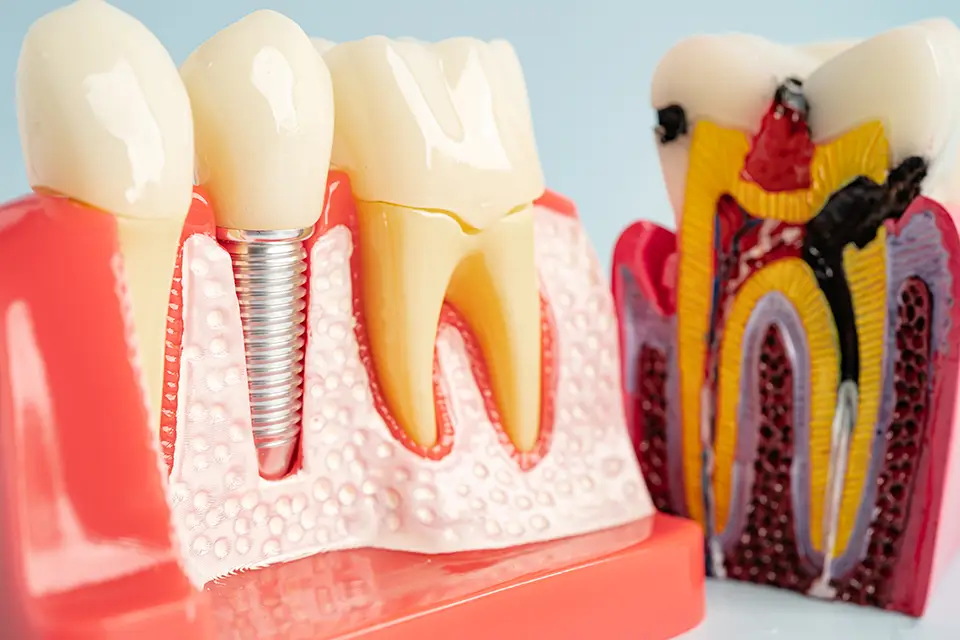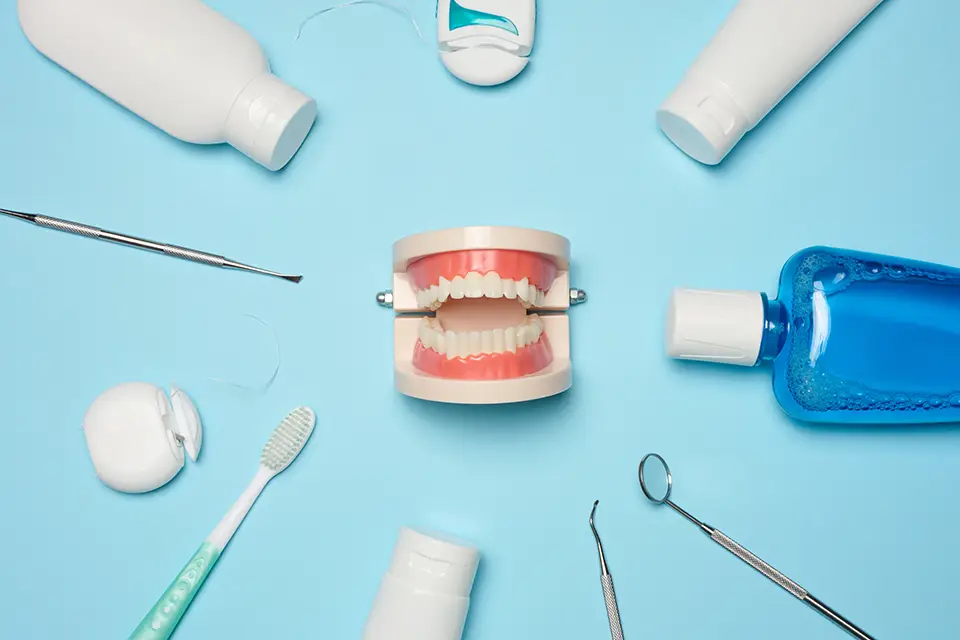Dental implants are a life-changing solution for people who have missing teeth, providing long-term function and a natural appearance. If you have gum disease, you may wonder if you are still a candidate for this advanced dental procedure. At Sunshine Dentistry in Richmond Hill, Ontario, we often hear this question, and the answer depends on the severity of your condition and your overall oral health.
In this post, we’ll look at how gum disease affects dental implants, what steps are required before implant placement, and what you can do to increase your chances of success.
What Is Gum Disease?
Gum disease, also known as periodontal disease, is a bacterial infection of the gum tissue caused by plaque buildup on and beneath the gumline. In its early stages, gingivitis causes symptoms such as red, swollen, and bleeding gums. When left untreated, it can progress to periodontitis, a more serious condition that causes gum recession, bone loss, and eventually tooth loss.
This progression is critical because dental implants rely on strong gum tissue and a stable jawbone to stay in place.
Can You Still Get Dental Implants with Gum Disease?
The short answer is yes, but only after the gum disease has been effectively treated and controlled. Active gum disease causes an unstable environment in your mouth, raising the risk of complications and implant failure.
At Sunshine Dentistry, we start with a thorough evaluation of your gum health. If we detect signs of gum infection, treatment must come first. This can involve:
- Deep cleanings (scaling and root planing) to remove plaque and tartar
- Antibacterial therapy to kill infection-causing bacteria
- Periodontal maintenance to monitor healing
- Surgical intervention if the pockets are too deep or the infection is advanced
We will consider proceeding with the dental implant process only once the infection has been resolved and your gums are stable.
📚 Related Articles on Dentistry in Richmond Hill
🌟 Also Read: Dental Crowns vs. Implants: Which Option is Right for You?The Role of Bone in Dental Implant Success
Aside from healthy gums, implants require adequate bone density. Gum disease can cause deterioration of the jawbone, which supports your teeth. This poses a challenge because dental implants are surgically placed into the jaw, where they fuse with the bone in a process called osseointegration.
If you have bone loss due to gum disease, you may require a bone graft to rebuild the structure before receiving an implant. Bone grafting involves placing material to stimulate natural bone regeneration. Although this step adds time to your treatment plan, it significantly improves the chances of long-term implant success.
Steps Toward Dental Implant Readiness

Sunshine Dentistry uses a patient-centered approach to determine the best course of action. Here’s a typical journey for someone with gum disease who wants dental implants:
- Initial Consultation: We examine your gums, teeth, and jawbone using digital imaging and a periodontal evaluation.
- Treatment for Gum Disease: Depending on the severity, we offer a customized treatment plan to eliminate infection and restore gum health.
- Bone Grafting (If needed): In cases of bone loss, we may perform a grafting procedure to rebuild jaw support.
- Healing Period: Your gums and bones require time to heal. We closely monitor your progress during follow-up appointments.
- Dental Implant Placement: Once your oral health is stable, we can place the implant and, later, attach the crown.
Maintaining Gum Health After Implants
Even after a successful implant, gum health is critical. Patients with a history of gum disease have a higher risk of peri-implantitis, an infection around the implant site. To protect your new smile, we recommend:
- Brushing and flossing twice daily
- Using an antimicrobial mouth rinse
- Scheduling regular dental checkups and cleanings
- Avoiding tobacco products
- Following a maintenance plan customized by our dental team
Ongoing care is essential for ensuring your dental implants last a lifetime.
📚 Related Articles on Dentistry in Richmond Hill
🌟 Read More: Innovative Dental Implant Solutions in Richmond Hill’s Bayview CorridorFAQs About Dental Implants and Gum Disease
1. Can mild gum disease prevent me from getting dental implants?
No. Mild gum disease, such as gingivitis, is typically reversible with professional care and proper hygiene, allowing you to proceed with implants once treated.
2. Will I need surgery to treat gum disease before getting dental implants?
Not in every case. Some patients can manage gum disease with deep cleanings and non-surgical treatments, while others may require surgical intervention if the disease has progressed.
3. How long after gum disease treatment can I get implants?
The timeline varies depending on how you respond to treatment and whether bone grafting is necessary. Healing may take several months before implants can be safely placed.
Book Your Consultation at Sunshine Dentistry
If you’re dealing with gum disease but are considering dental implants, don’t lose hope. Many patients improve their oral health and enjoy the long-term benefits of implants. At Sunshine Dentistry in Richmond Hill, Ontario, we provide expert periodontal care and advanced implant solutions under one roof.
Call us today to schedule a consultation and start your journey to a healthier, more confident smile.



